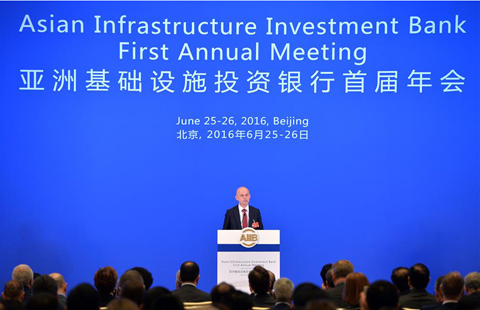Sharing economy set for big growth
By Meng Jing (China Daily) Updated: 2016-06-28 08:22When Jean Liu returned to Beijing from the United States years ago, she found that not owning a car in the capital city of China could cause anxiety especially "when bad weather comes, it is extremely difficult to hail a taxi".
"But now I don't need to wait at the side of the road for taxis anymore. I can just sit at home, book a ride via smartphone and a car will come and find me," she said in a keynote speech during the recent China Internet Conference.
Liu is the president of Didi Chuxing, China's largest on-demand ride service provider. Rather than simply providing rides based on individual needs, the Beijing-based tech company, allows people to lend their idled cars and time to provide services to others and make a profit.
According to Liu, more than 100 million people across 400 cites in China hailed 1.43 billion "taxi" rides via her mobile application, which used 15 million cars that it did not own to provide the service.
"These are some really big numbers. But China has an urban population of 800 million. The ride services provided by our platform only accounts for 1 percent of the entire transportation demand in urban China," she said.
"In San Francisco, about 15 percent of the transportation demands are met by service providers like Didi, which signals great potential for us."
Increasingly in the era of mobile internet, many things can be hired online. When traveling around, you can book a stay in others' private apartments or eat meals made by some of your neighbors who are really good at cooking.
This peer-to-peer based collaborative consumption have gradually made "what is mine become yours" and boost the development of the so-called sharing economy in China.
According to the China Sharing Economy Development Report, jointly released by the State Information Center and the Internet Society of China, sharing economy could potentially drive economic growth as more than 500 million people are involved in a market that was worth 1.95 trillion yuan ($302 billion) in 2015. An estimated 50 million people work for sharing economy related companies, account for 5.5 percent of China's working population.
- China, Egypt zone in Tianjin to expand
- Deloitte to open more offices around China
- PwC says data analytics are transformative
- 'Policy tools can meet challenges'
- German robotics maker Kuka poised to sign Midea bid
- Insurers urged to improve information disclosure
- Brexit hits banks, scares off M&As
- Vote not seen impacting power project in UK


















